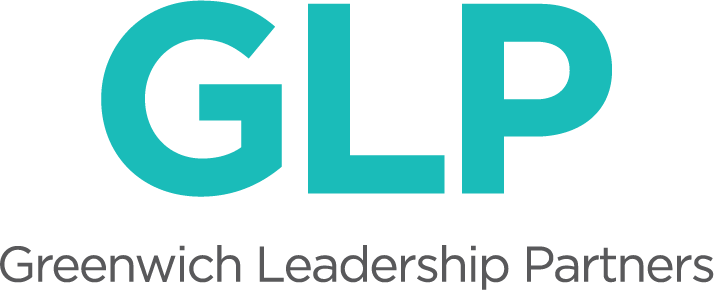This July GLP held its first Leadership Lab workshop, part of a comprehensive transition program to help new boarding school heads prepare for their first year of leadership. We conceived the Leadership Lab as a highly interactive, but deeply personalized entry into headship. Sensing the need for a higher level of new head preparation, we conducted qualitative research and confirmed that a bold, fresh approach---one with small cohorts, beginning preparation months before the new heads start their tenure, and continuing with one-on-one executive coaching and feedback well into their first year on the job—was justified. In fact, our research feedback from current heads confirmed that such a program was necessary.
Of course, we had to find some new heads to work all this magic on. As the planning took shape late in the winter, a time that missed many of the new head searches, the inaugural cohort did in fact come together, and thus encouraged, GLP’s launch of Leadership Lab was on. Clearly, at this point, the program was just abstract stuff, not real until the cohort dug into the work—and gave us feedback on its relevance and value. Only then, when our concepts began to engage the individual new heads’ experience did our work become real. Trying to be nimble, we listened to our participants and modified some Leadership Lab aspects (like deadlines)—yet, we also doubled down on our goals for the launch strategy: prototyping a powerful design around the needs of our new heads, their boards, and their individual school environments.
By mid-July much of the accelerated learning process, which began in April, was completed, including a ninety-minute facilitated conversation with each of the new heads and their board chairs. The focus of the work was two-fold: know your new school and know yourself as a leader. Indirectly, some of the spring tasks were collaborative with the faculty and staff with whom the new heads would be working. All of the assignments and reading moved the cohort toward the high point of the summer part of the Leadership Lab: the workshop in July. This workshop provided a break from their recent physical move and took them to a bucolic, expansive conference center in Connecticut. I mean, seriously, the food was good, too.
What followed was a short (three day) but intensely packed experience that allowed new heads to reflect on their path to leadership, analyze their new school culture, and practice new skills. Sure, there was a variety of content and issues that the cohort saw as essential to cover. Nonetheless, content did not rule in our workshop; planning, envisioning, and creating a tangible action plan were the goals. True to the GLP’s philosophy, the final project was each participant’s presentation of the plan, a presentation that invited analysis, critique, and constructive feedback from the other participants and the GLP team. This project presentation made the learning real and dynamic, allowing each participant to depart with a roadmap for the beginning of her new tenure.
Yes, of course, there was some content focus, topics ranging from such larger issues such as financial management, board relations, governance, establishing a leadership presence, and organizational design, to more focused, daily management/leadership skills such as delegation strategies, how to run meetings, and effective communication planning.
To provide a variety of perspectives and experience to the workshop, guest faculty members included Rob Hershey, recently retired headmaster of Episcopal High School in Alexandria, Virginia, and Jim Frick, the Associate Head/Chief Operating Officer of Blair Academy. Rob’s experience as head of three different schools over a long career gave the cohort a perspective not only on trustee management issues, but also on the political nature of headship. Meanwhile Jim’s 25-year career in independent school finance and facilities management offered the cohort specific advice and expertise to each participant on the school’s budget/financial/facilities situations.
In addition to individual meetings with Rob and Jim, executive coaching sessions with Stephanie Rogen and Monie Hardwick, both trained executive coaches, the participants also were coached and filmed extensively in public speaking skills.
While part of the takeaway from this workshop was the sense of constantly being “on” for three days—there was very little down time, except for one dinner on the town—it was also quite school-like, in the sense that for a head of school constantly shifting gears and keeping focused to deal with a variety of situations is such a key part of the position. The workshop emphasized the reality of balancing the reactive nature of school management with the expectation that school leadership requires creative energy, forward planning, and articulating a path toward making what is good better, and what is working well today working very well tomorrow.
At this slightly beyond the midway point in this new program, we sense that the concept of the Leadership Lab is on the right track, with the extensive planning necessary yielding rewarding work for and from the cohort members, reassuring them and us as to the value of our comprehensive approach. As one participant wrote following the workshop: “Honestly, every minute (of the workshop) felt incredibly helpful and worthwhile to me…Big picture?—I know I am on the right track.”
The next phase of the Leadership Lab will be monthly individual executive coaching sessions. We shall then come together again in early December for a one-day workshop, knowing that the transition and issues look different six months into the job. In addition to the cohort providing support to each other, the comprehensive, ongoing, nature of GLP’s program marks a significantly different approach to preparing new heads of school.
We are set to roll out The Leadership Lab for 2017 and seek out the next cohort (or even cohorts), even as we continue our work this autumn with this strong inaugural group. And as we are concluding this first summer workshop, saying our farewells, the first cohort members say they want to stay involved and be helpful to the ensuing participants. Good idea.
